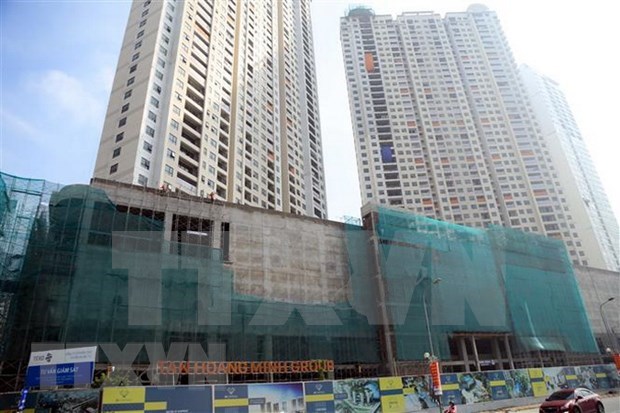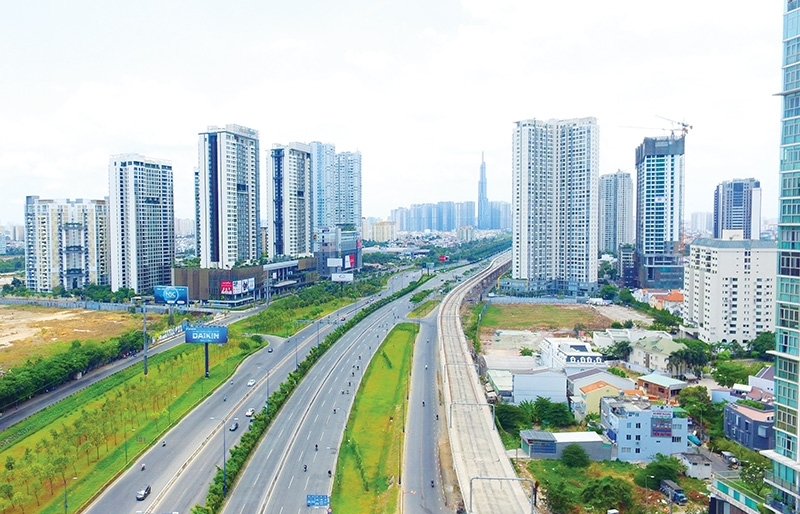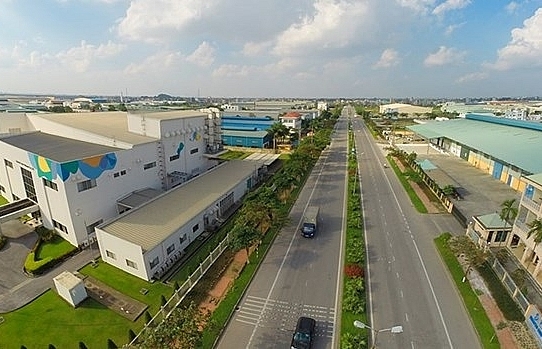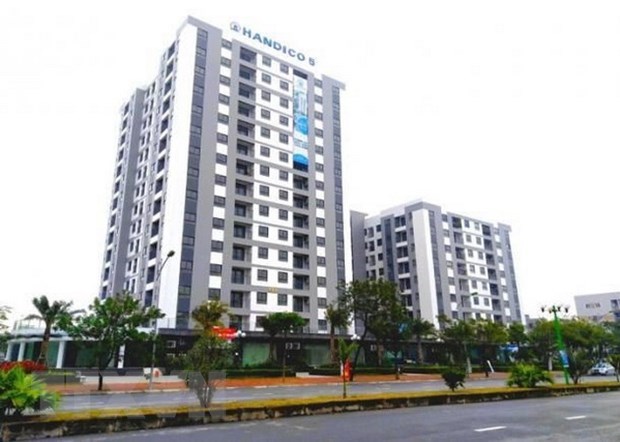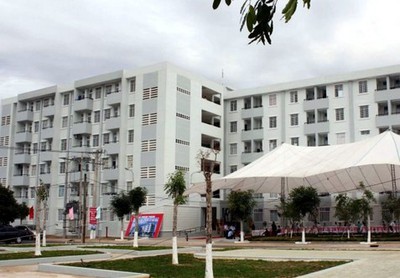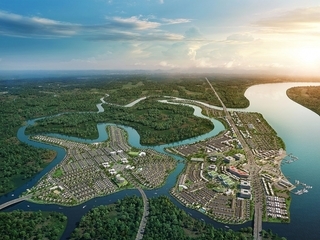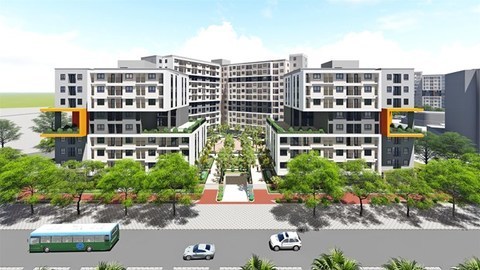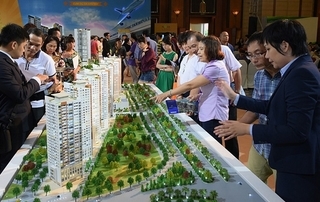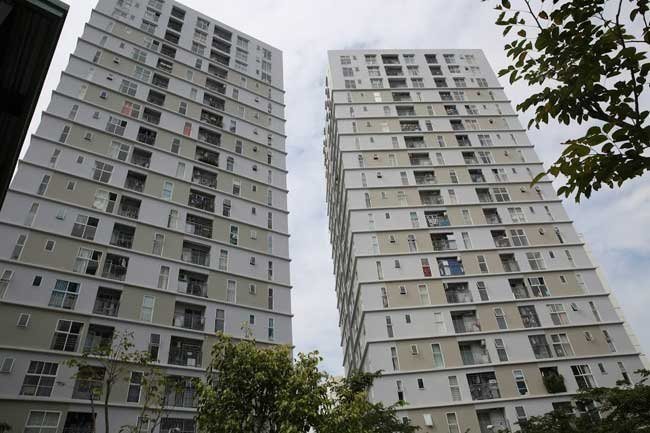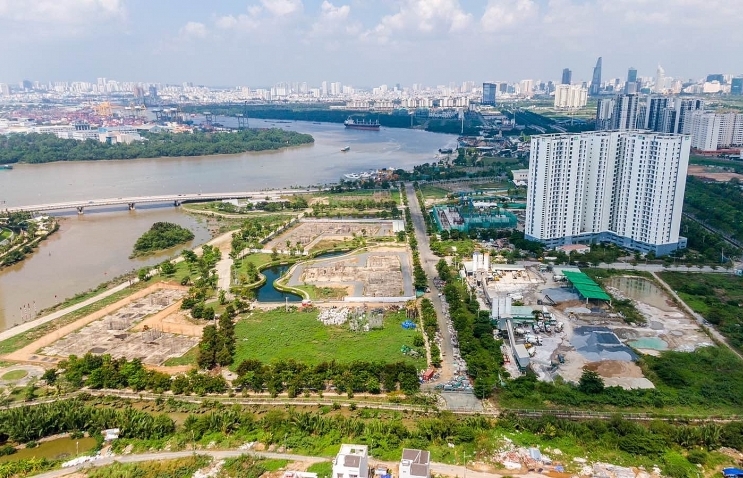- © Copyright of Vietnamnet Global.
- Tel: 024 3772 7988 Fax: (024) 37722734
- Email: evnn@vietnamnet.vn
real estate
Update news real estate
Successful property transactions lowest in last four years: Ministry
 Successful property transactions accounted for 14 percent of the total existing units in the first quarter of 2020, marking a decrease of 60 percent from the same period last year and also the lowest in the past four years, according to a report.
Successful property transactions accounted for 14 percent of the total existing units in the first quarter of 2020, marking a decrease of 60 percent from the same period last year and also the lowest in the past four years, according to a report.
Measures fit for real estate recovery
 The ongoing coronavirus pandemic has upended economies worldwide, and Vietnam must take urgent measures to handle this period of instability.
The ongoing coronavirus pandemic has upended economies worldwide, and Vietnam must take urgent measures to handle this period of instability.
Experts: industrial real estate faring well in 2020
 Foreign investors are planning to expand their operations in Vietnam this year, creating an opportunity for industrial property development despite the COVID-19 pandemic, according to experts.
Foreign investors are planning to expand their operations in Vietnam this year, creating an opportunity for industrial property development despite the COVID-19 pandemic, according to experts.
COVID-19: many real estate trading floors close
 The transaction volume on the domestic real estate market dropped to a four-year low for Q1 due to the impacts of the COVID-19 pandemic, and many real estate trading floors have temporarily closed.
The transaction volume on the domestic real estate market dropped to a four-year low for Q1 due to the impacts of the COVID-19 pandemic, and many real estate trading floors have temporarily closed.
Changes required for central real estate
 Despite going through a quiet period due to the effects of the coronavirus outbreak, investors and real estate businesses in Danang and the central region are striving to remove difficulties to maintain stable operations and adapt to a new direction.
Despite going through a quiet period due to the effects of the coronavirus outbreak, investors and real estate businesses in Danang and the central region are striving to remove difficulties to maintain stable operations and adapt to a new direction.
Real estate sector to suffer short term amid COVID-19
 Real estate companies will suffer in the short term due to the COVID-19 pandemic, but the overall outlook remains positive, according to a CBRE report.
Real estate companies will suffer in the short term due to the COVID-19 pandemic, but the overall outlook remains positive, according to a CBRE report.
New trends influencing Vietnamese real estate market
 CBRE Vietnam’s senior director Dung Duong offers her take on the new trends that will shape the local real estate market since the COVID-19 outbreak.
CBRE Vietnam’s senior director Dung Duong offers her take on the new trends that will shape the local real estate market since the COVID-19 outbreak.
Local retail property market over saturation point
 The local retail property market has reached the saturation point years ago and now empty storefronts and shopping centres are putting a dent in forecasts.
The local retail property market has reached the saturation point years ago and now empty storefronts and shopping centres are putting a dent in forecasts.
Overview of Vietnamese green building market
 A handy infographic of the most important figures from the Vietnamese green building market.
A handy infographic of the most important figures from the Vietnamese green building market.
Firm appeal for Japanese developers
 Japanese investors continued to demonstrate their confidence in the Vietnamese real estate market with recent involvement in new large-scale projects.
Japanese investors continued to demonstrate their confidence in the Vietnamese real estate market with recent involvement in new large-scale projects.
New regulations the first step towards condotel resurgence
 Several years ago, a large wave of condotels was introduced to the market across Vietnam.
Several years ago, a large wave of condotels was introduced to the market across Vietnam.
HCM City draws up specific policies for large firms
 HCM City plans to draw up specific policies for firms having capital of more than VND100 billion (US$4.3 million) in the first quarter of this year, and has committed to create more favourable conditions for enterprises.
HCM City plans to draw up specific policies for firms having capital of more than VND100 billion (US$4.3 million) in the first quarter of this year, and has committed to create more favourable conditions for enterprises.
Real estate market scenario for 2020: capital flows continue to suburban eco-cities
 With their massive land funds and ample investment inflows for transport infrastructure development, the suburban cities surrounding Ho Chi Minh City are projected to become the next hotspot for investors and buyers.
With their massive land funds and ample investment inflows for transport infrastructure development, the suburban cities surrounding Ho Chi Minh City are projected to become the next hotspot for investors and buyers.
Real estate businesses ask VN Government to remove difficulties
 The Vietnam Real Estate Association (VNREA) will next month propose solutions to Prime Minister Nguyen Xuan Phuc to remove difficulties in administrative procedures, capital and cut loan interest for real estate businesses.
The Vietnam Real Estate Association (VNREA) will next month propose solutions to Prime Minister Nguyen Xuan Phuc to remove difficulties in administrative procedures, capital and cut loan interest for real estate businesses.
Hanoi hands out red books to foreigners
 Six foreign organisations and 35 foreigners were granted red books to purchase a number of apartments in Hanoi.
Six foreign organisations and 35 foreigners were granted red books to purchase a number of apartments in Hanoi.
Big shot investors in real estate M&A push
 Vietnam’s real estate market is currently one of the most attractive in Southeast Asia, with many opportunities for domestic real estate developers to find partners and investors in the form of mergers and acquisitions.
Vietnam’s real estate market is currently one of the most attractive in Southeast Asia, with many opportunities for domestic real estate developers to find partners and investors in the form of mergers and acquisitions.
Real estate takes lead for suspended and dissolved firms
 The real estate sector has seen the highest growth in the number of enterprises registering for temporary suspension and dissolution, at 598 enterprises and 686 others, surging 36.8% and 39.4%, respectively, against the 2018 figures.
The real estate sector has seen the highest growth in the number of enterprises registering for temporary suspension and dissolution, at 598 enterprises and 686 others, surging 36.8% and 39.4%, respectively, against the 2018 figures.
HCM City real estate developers request help to resume projects
 Many real estate developers in Ho Chi Minh City are facing stagnation in hundreds of projects due to insufficient legal paperwork.
Many real estate developers in Ho Chi Minh City are facing stagnation in hundreds of projects due to insufficient legal paperwork.
Industrial and logistics real estate faces bountiful year
 Last year was another record year for industrial and logistics real estate in Vietnam when foreign direct investment (FDI) into manufacturing remained positive.
Last year was another record year for industrial and logistics real estate in Vietnam when foreign direct investment (FDI) into manufacturing remained positive.
Vietnam to see new FDI trend in real estate
 Investment in real estate sector through capital contribution would avoid risks that might cause to new comers who know little about the market and law.
Investment in real estate sector through capital contribution would avoid risks that might cause to new comers who know little about the market and law.
